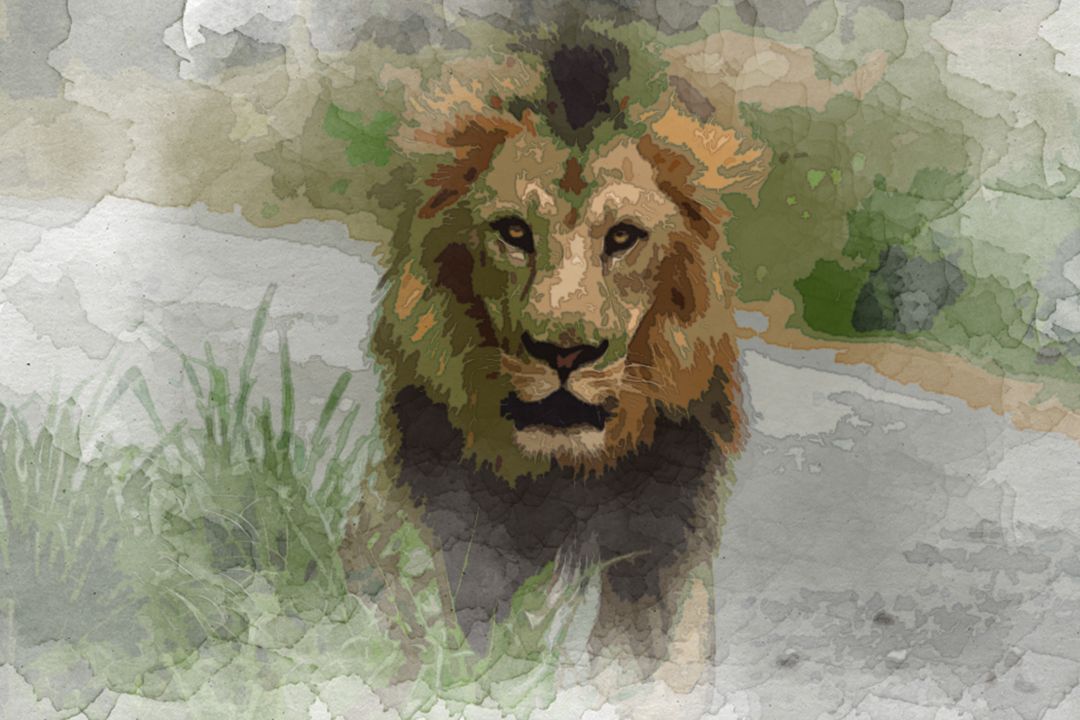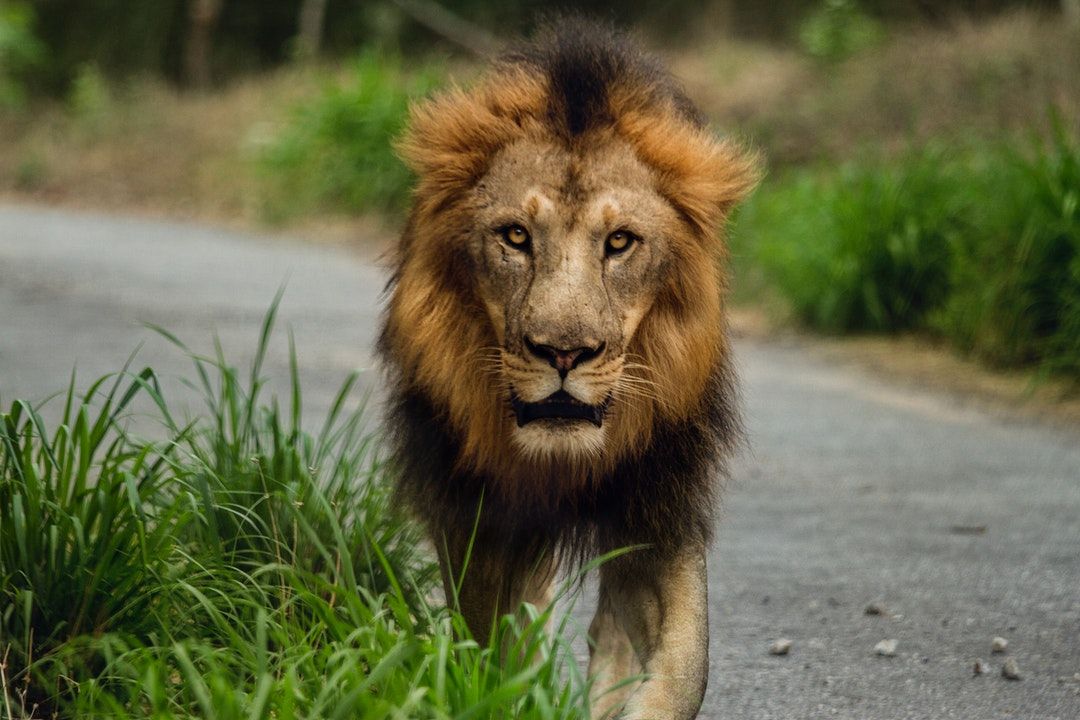Sounds Like Biological Determinism

Lions Don't Lie. Except When They Are Sleepy
In the dappled shade of the savannah, Alexander lay sprawled under the acacia tree, deep in thought. A lion not only by nature but also by name, he had often puzzled over the quandaries of existence, finding a strange kinship with the philosophers of a species not his own. He mused over the human condition, a concept he found both amusing and perplexing. The whispers of the grass seemed to carry to him the voice of a long-gone thinker.
A man can do what he wants, but not want what he wants.
— Arthur Schopenhauer (1788-1860)
This paradox amused Alexander greatly, and he let out a hearty chuckle that rumbled through the plains. He was the king of his domain, able to chase the gazelle, command the respect of the pride, and rest under the shade of the trees as he pleased. Yet, he often found himself wanting the simplest of pleasures: a cool breeze during a scorching day, the succulent taste of a zebra, or the company of his dear Sophia. These wants were not chosen but felt, as inherent to his being as his majestic mane.
Amidst his musings, Sophia approached, her steps silent on the soft earth. Her fur glowed like burnished gold in the sunlight, and her eyes reflected the wisdom of the skies. “Why so pensive, Alexander?” she inquired with a soft purr that seemed to make the air vibrate.
Sharing the quote with her, Alexander explained his ponderings. Sophia listened intently, her tail flicking thoughtfully. “It is true,” she mused. “We are slaves to our desires, bound by chains of instinct and need. But within those bounds, there is much we can do.”
They decided to challenge the very essence of Schopenhauer’s words. “Let us do something entirely within our power, yet entirely against our wants,” proposed Sophia with a mischievous glint in her eyes. The plan was simple: they would spend the entire day awake, resisting the urge to succumb to their feline naps.
The sun arched across the sky as Alexander and Sophia engaged in debates, play-fights, and hunting games – anything to keep the heaviness of sleep at bay. As the sun began to set, painting the sky in shades of fire and blood, they found themselves laughing, a sound that was rare and beautiful amidst the usual roars and growls of the savannah.
They had indeed done what they wanted – stayed awake – but in doing so, realized that some wants are deep-rooted for a reason. As the night unfurled its starlit canopy, they finally allowed sleep to claim them, a sleep that was perhaps the sweetest, for it was hard-earned.
With the wisdom of Schopenhauer’s words echoing in their minds, Alexander and Sophia had found joy in defying the expected, delight in the simple rebellion against their nature. And as they slept under the vast African sky, one thing was certain: they had lived a day entirely of their own making.
As dawn crept over the savannah, the sun's early light played upon the resting forms of Alexander and Sophia. Their slumber was deep, enriched by the adventures of the day before. As the morning progressed, the two lions awoke, feeling oddly rejuvenated by their self-imposed challenge. With a stretch and a yawn, they greeted the new day, ready for another round of philosophical musings and mischievous exploits.
Sophia, whose wit was as sharp as her claws, sauntered up to Alexander with a twinkle in her eye. "Do you know, my dear," she began, "that we lions are not the only creatures of deception?" She recounted a tale she had overheard, whispered by the wind and carried by the birds, a story of human cunning and guile.
You women could make someone fall in love even with a lie.
— Georg Büchner (1813-1837)
Alexander tilted his head, intrigued by the notion. "And pray tell, how would a lioness make use of such a talent?" he queried, his tone light with the promise of a jest.
Sophia's laughter rang clear as she wove a tale of a lioness so clever, she convinced a proud, unsuspecting peacock that he was the bravest beast in the land, simply by praising the gallant flutter of his feathers when he ran from a mouse. "Oh, the poor bird puffed up so, he believed he could scare off a charging buffalo!"
The two lions chuckled at the image, their laughter mingling with the warm breeze. "And what of you, Alexander? Could you not charm the stripes off a zebra with a few honeyed roars?" Sophia teased.
Alexander grinned. "Perhaps, but why would I want a stripeless zebra when I have such a resplendent lioness by my side?" His compliment was both sly and sincere, and Sophia nuzzled his mane affectionately in response.
The day waned as they played with the truth and fiction of their own making. They realized that while lies could indeed spark love, as Büchner suggested, their bond was strengthened by the genuine respect and admiration they held for each other. As the sun kissed the horizon, Alexander and Sophia knew that their love was no lie, but as true as the land they called home.
Together, they watched the sky turn from blue to blazing orange to the deep purple of twilight, the truth of their affection a constant as the shifting colors of the sky. They had tested the power of a lie in love and found it lacking compared to the simple, unadorned truths of the heart.
The savannah was alive with the whispers of the night, a symphony of sounds that only those who truly belonged could understand and appreciate. Alexander and Sophia rested side by side, their bodies rising and falling in unison with each breath. The night was their canvas, the stars their audience, as they delved into deeper musings, the kind that often came when the world was hushed and the heart open.
On this night, the subject was one of gravity, carried to them on the cool night breeze, a reminder of the complexities of existence and the power held within the spoken word.
The great masses of the people will more easily fall victims to a big lie than to a small one.
— Adolf Hitler (1889-1945)
Sophia's eyes darkened at the quote, the depth of its meaning resonating with her. She thought of the herds of buffalo that stampeded at the slightest hint of danger, real or imagined. She spoke of how the unity of belief in a falsehood could bind them together in a blind, thundering charge, just as it could bind people.
Alexander, his mane flickering in the moonlight like the very shadows that played tricks on the minds of the fearful, nodded in agreement. "A big lie," he rumbled thoughtfully, "is like a rogue elephant. It tramples reason and crushes truth beneath its weight."
The conversation took a turn, the two lions playfully imagining if they could conjure a grand lie that would cause the entire savannah to leap into the air. What if they roared that the sky was falling? Would the gazelles gallop in panic, would the birds take flight in terror, would the trees shed their leaves in despair?
They roared together, a thunderous sound that echoed across the plains, startling a flock of birds into flight. But the sky did not fall, the trees stood firm, and the gazelles, though skittish, soon calmed. The savannah remained, unshaken by the might of their voices.
Sophia and Alexander laughed then, their mirth ringing out as they realized the absurdity of their game. Yet beneath their laughter was a kernel of truth: the impact of a lie lay not in its volume or its boldness, but in the willingness of others to believe and to act upon it.
Their night of discourse taught them the importance of discernment, the value of skepticism, and the power of trust. They understood that their roars could move the savannah, stir fear, inspire awe, but they also carried the weight of responsibility.
As the first light of dawn began to touch the sky, painting it with strokes of pink and gold, Alexander and Sophia watched in silent agreement. They had learned the lesson of the big lie and the strength of the truth.
With a new day breaking, they rose, their bodies casting long shadows on the earth that had been their bed. They walked side by side, their steps light, knowing that while lies might echo far, it was the truth that truly roared across the expanse of their savannah home.

The planksip Writers' Cooperative is proud to sponsor an exciting article rewriting competition where you can win part of over $750,000 in available prize money.
Figures of Speech Collection Personified
Our editorial instructions for your contest submission are simple: incorporate the quotes and imagery from the above article into your submission.
What emerges is entirely up to you!
Winners receive $500 per winning entry multiplied by the article's featured quotes. Our largest prize is $8,000 for rewriting the following article;

At planksip, we believe in changing the way people engage—at least, that's the Idea (ἰδέα). By becoming a member of our thought-provoking community, you'll have the chance to win incredible prizes and access our extensive network of media outlets, which will amplify your voice as a thought leader. Your membership truly matters!


